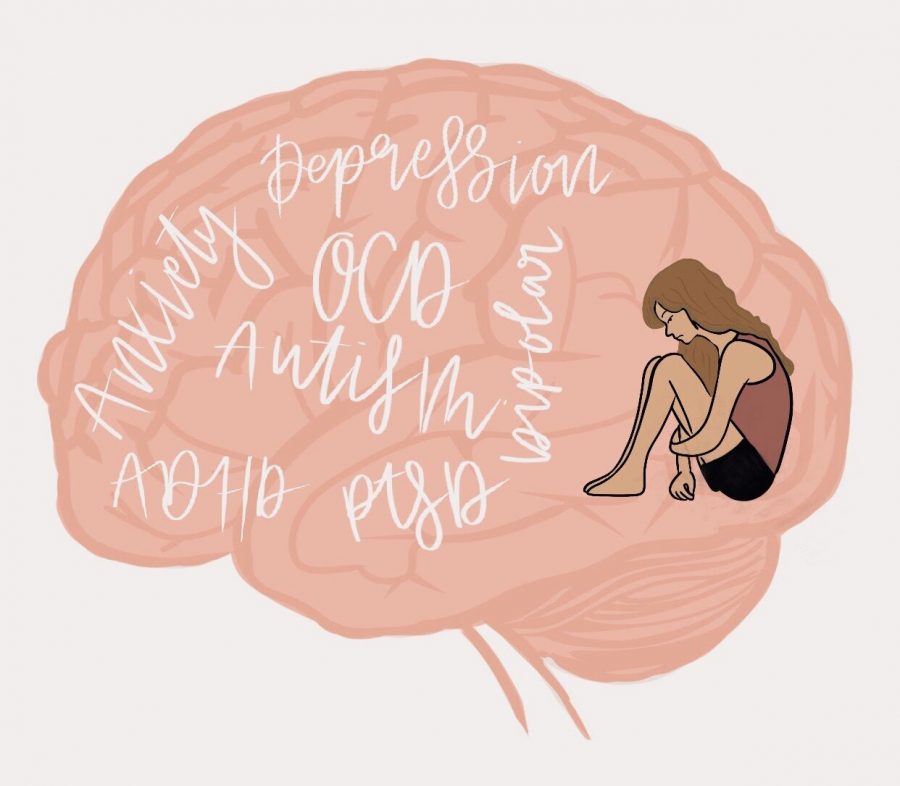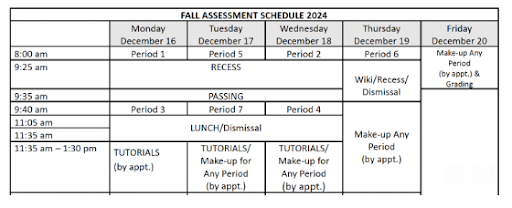Schools should provide more mental health services
Regardless of what anyone says, being a teenager isn’t easy. While we may not suffer the responsibilities of being adults, we’re not simply given a free pass in life either. Teenagers go through a vast amount of unique struggles. From navigating the overwhelming presence of social media to literally trying to save our planet, we have a lot on our plates. On top of dealing with issues at home and coping with the emotions of going through adolescence, a common cause of stress among teens across the world is school. With colleges becoming increasingly competitive and 4.0’s not considered “good enough ” anymore, many students have fallen victim to extreme pressures related to academic achievement. Schools don’t always provide the best learning environments for their students either. From long classes, crammed schedules, harsh teachers, to limited downtime, maintaining even a passing GPA is a considerable challenge for some.
Many students experience forms of anxiety, stress, or depression as a result of school or home life. They may often wish they had someone outside of their friends or family to talk to about their personal issues, or have no regular interactions with their parents or guardians regarding mental health.
When asked how her parents address the topic of mental illness, 11th grader Janna Pagnaniban said, “They truly don’t understand what having mental health issues does to a person. Whenever there’s news about famous people dying because of having mental health issues, they would call them crazy.”
With many students feeling like they wouldn’t be able to openly talk about their emotions at home, they don’t know where to turn.
Students may also feel uncomfortable addressing their problems with friends, feeling like they are putting a burden on them by doing so.
This is where employing mental health professionals such as psychologists in schools comes into play. Mental health professionals on campus could help to eliminate boundaries that prevent students from receiving psychological help. It would provide students with an outlet they wouldn’t have otherwise.
The idea of providing mental health services to students isn’t new; in fact, several US schools have already successfully introduced professional psychologists on campus. In 2014, Crockett High School in Austin, Texas, opened the first mental health clinic of its kind called the “Crockett Clinic.” There, students were able to seek therapy during school hours with certified psychologist Elizabeth Minne. One of Minne’s first patients was a teenage girl named Sarah Luna Newcomer. In an interview by the Washington Post, Newcomer said, “For years, I just wanted to die. I didn’t want to exist, but within a few months of beginning therapy, it was the complete opposite. I began feeling like I mattered, that my life mattered. It opened up a world of possibilities for me.”
As more research on the effects of therapy surface, its benefits are evident. According to one study by Professor W. Linden and J.V Moseley of British Columbia University, it was discovered that receiving therapy produced the same level of systolic blood pressure reductions as antihypertensive medication. This goes to show that therapy not only has emotional repercussions, but physical ones as well.
Crockett High psychologist Elizabeth Minne said, “Growing up is hard enough as it is. When you add in common challenges like anxiety, substance use issues, severe school stress or family-related trauma, it’s incredibly difficult for a child to develop healthy coping habits without the proper support. That’s where we come in.”
School psychologists should support students in addition to regular counselors. According to Wake Forest University’s “What’s the Difference: School Counselor vs. School Psychologist?” both “provide services that support students and encourage healthy development. However, they typically take different approaches to achieve these goals. School counselors deliver basic services to a broad range of students, but school psychologists provide comprehensive mental health care services to students who are struggling with their mental health.” Because psychologists can really hone in on individuals and provide deeper analysis of mental health issues, it would be beneficial to have them on campuses as well.
There’s no question that providing kids with this type of service would be astronomically helpful. It could legitimately save lives and improve the lives of those struggling. Too many people don’t receive the help they need, and getting teenagers someone to talk to is urgent.
Mental health awareness should also be promoted within communities as a whole. When people develop a common understanding on an issue, they feel a stronger sense of unity. There are many events and workshops all across Oahu aimed at achieving this goal, but they do not get nearly enough publicity. If schools considered announcing and advertising these events, more people would be aware of them, and kids and their parents could participate in these events together.
The fight to raise awareness about mental health is one everyone needs to be a part of. Schools should serve as a gateway towards a brighter future for everyone’s mental health.
Willow Takahashi is a 12th grader in the Academy of Arts & Communication.






